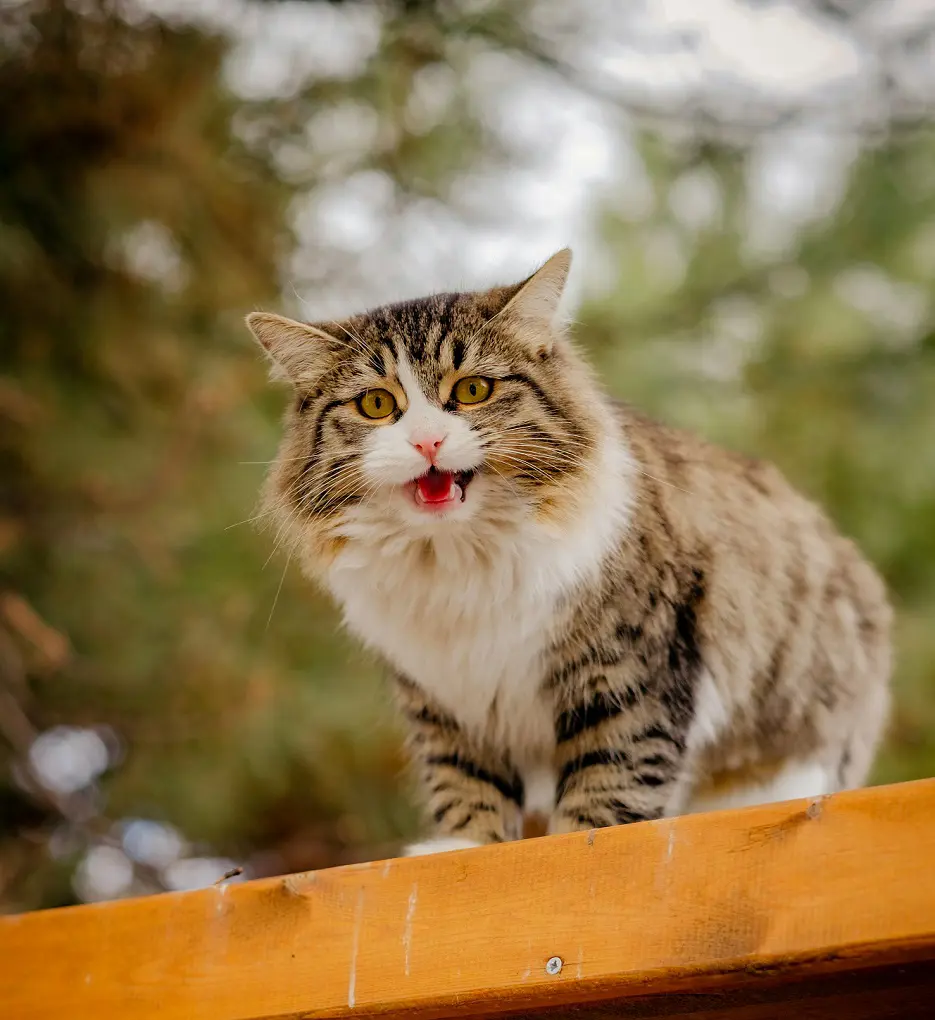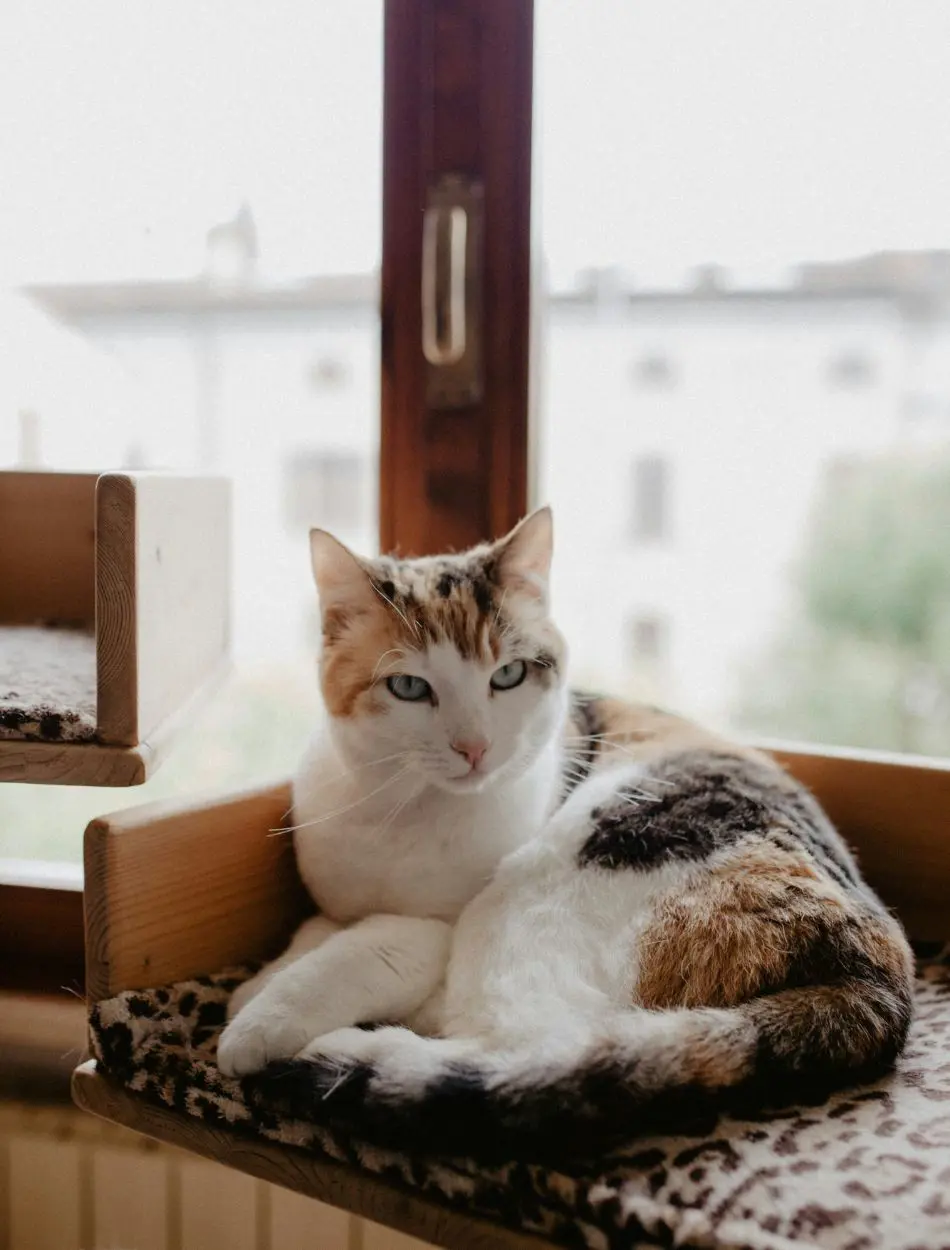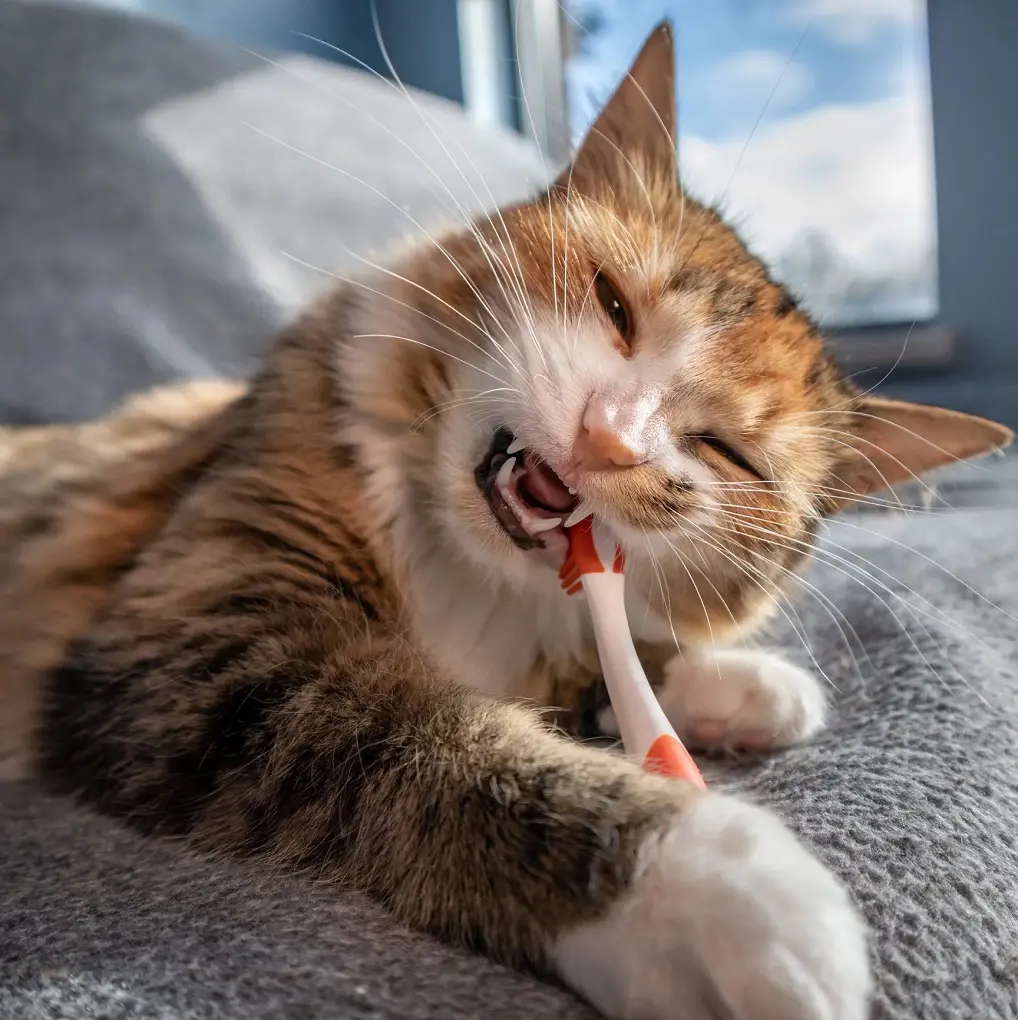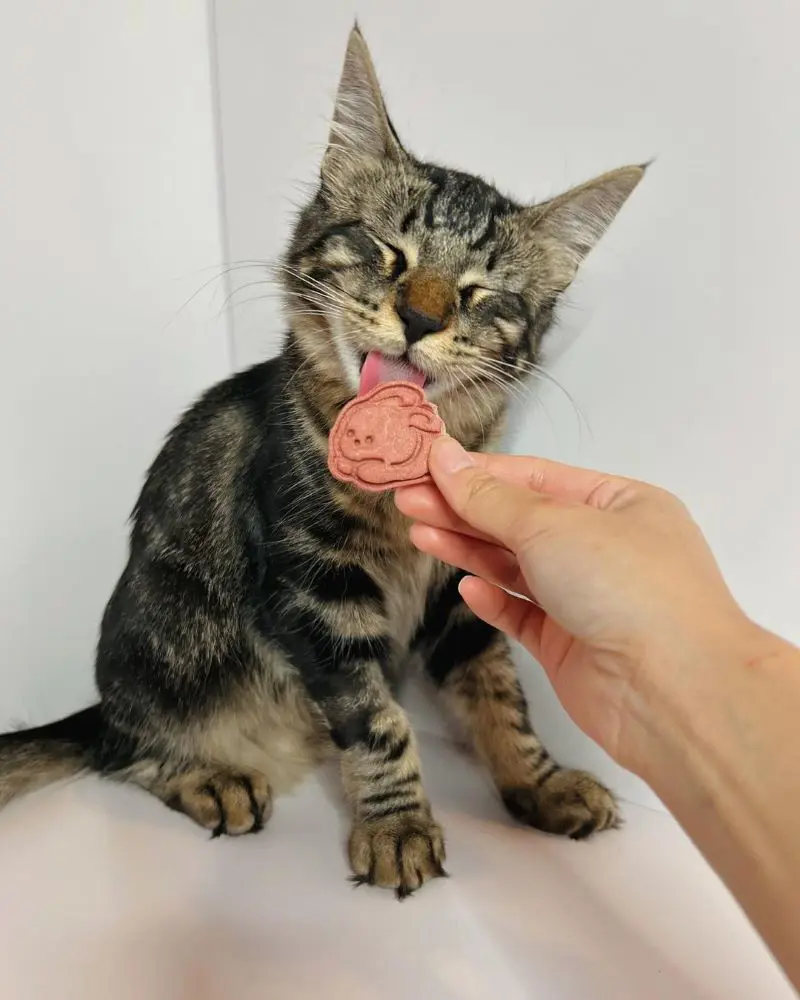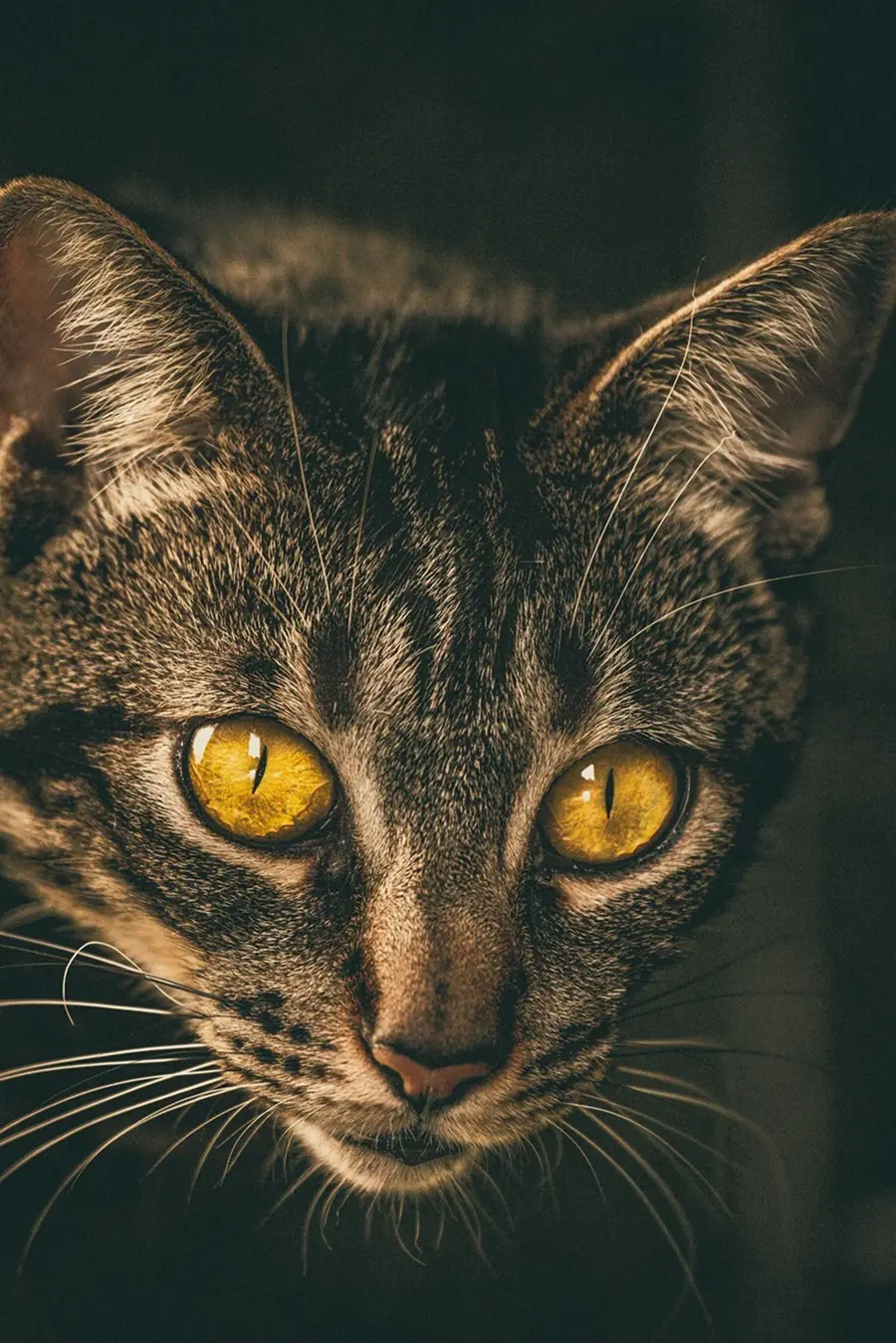Why Does My Cat Suck? 18 Common Causes
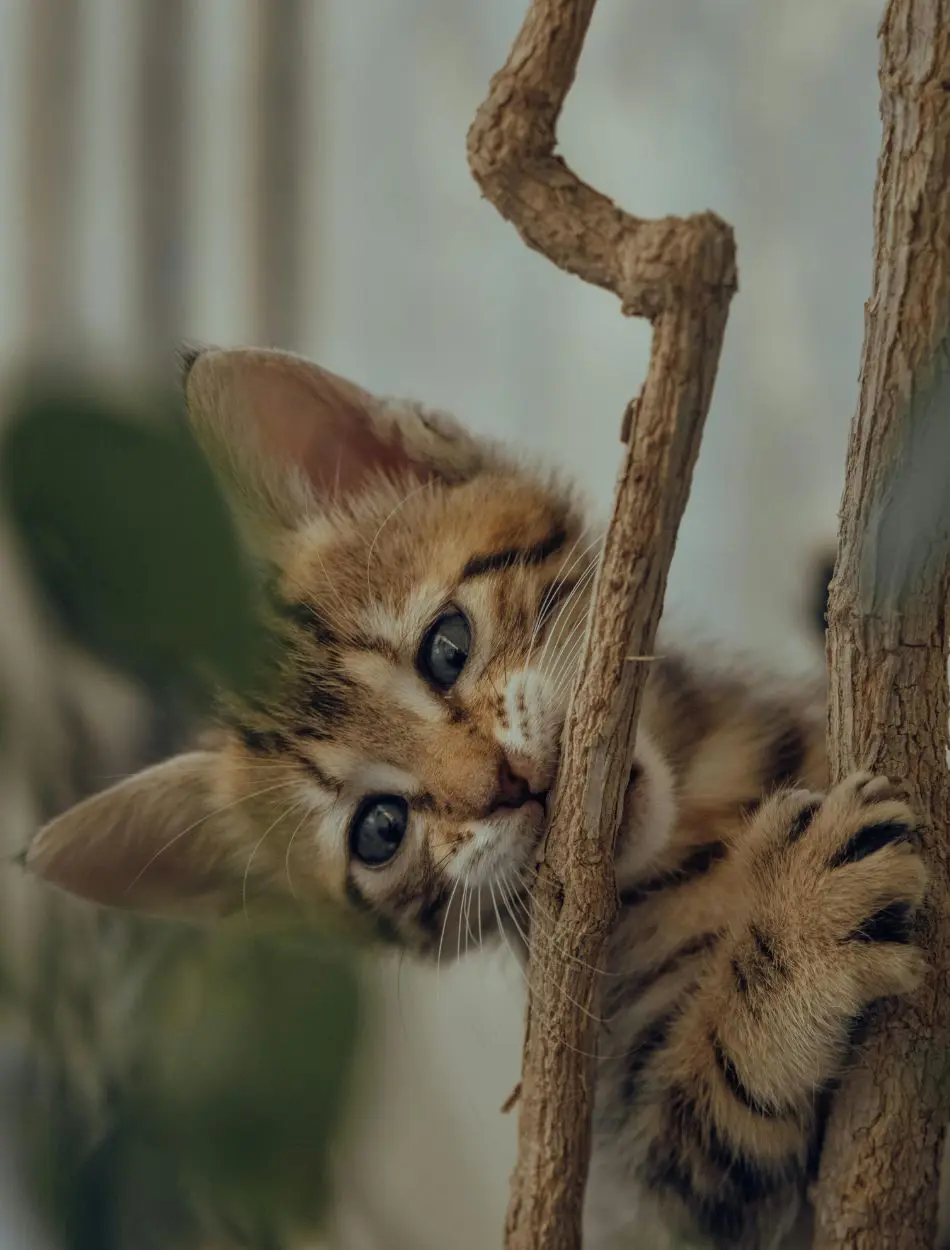
Cat suckling, a behavior where kittens nurse from their mother or, in some cases, from objects or other cats, is a natural and instinctive activity. This behavior is typically observed in young kittens who rely on their mother’s milk for nutrition and comfort.
While it can be a soothing and comforting habit for the cat, it may also indicate underlying issues such as early weaning, stress, or anxiety. Understanding the reasons behind cat suckling and recognizing whether it is a benign habit or a sign of distress is essential for cat owners.
1. Seeking Comfort
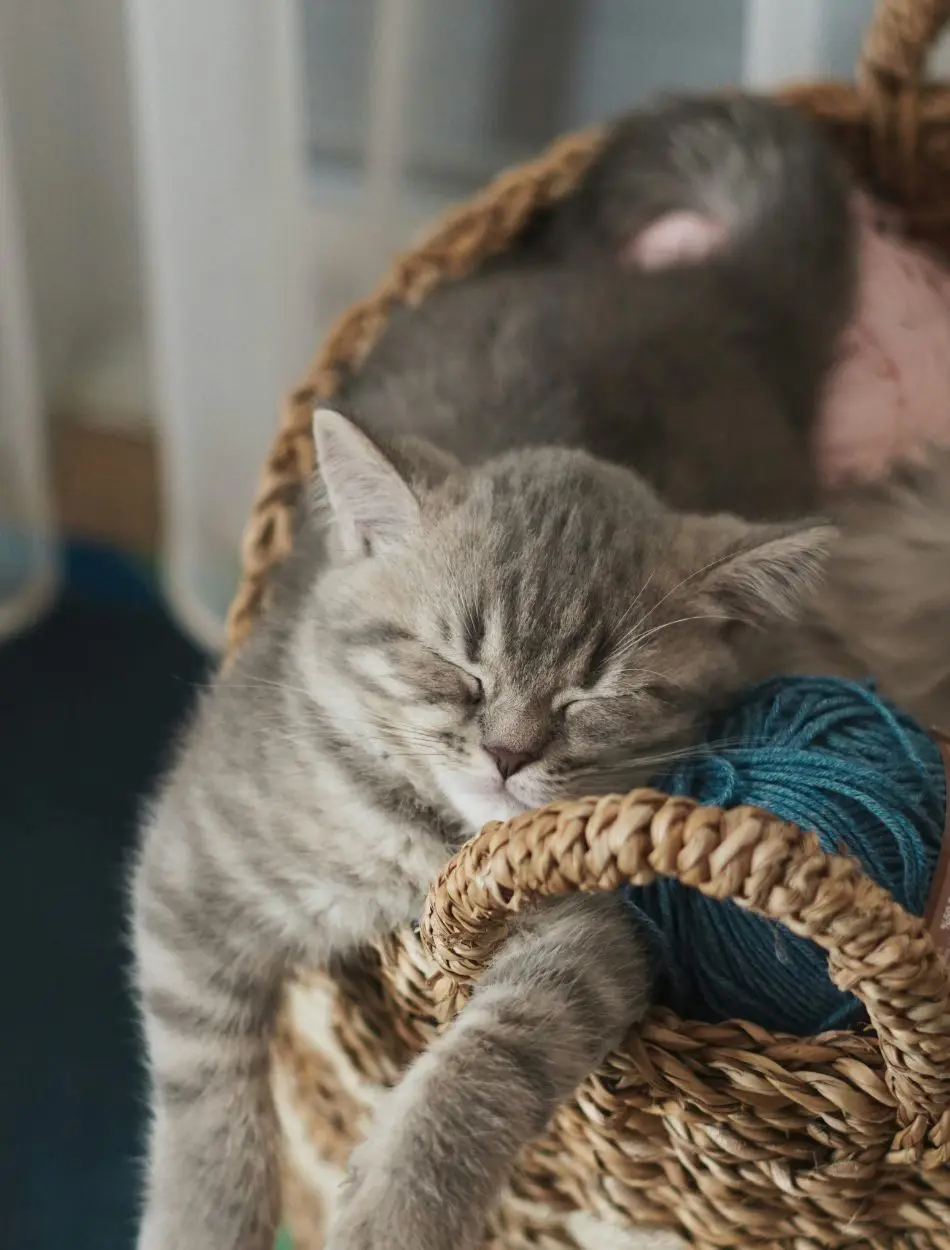
It can only be said that cats suck up soft objects almost like a child sucks his thumb, which gives them comfort. They do this when they are most stressed or anxious, and it calms them down.
If you give them something that is soft and snuggly, like a blanket, or something plush, like a toy, they'll be more likely to suck on those rather than other things. Taking note of when your cat sucks on things could help you figure out what might stress them out and maybe fix the root of the problem.
2. Early Weaning
Kittens weaned too early from their mothers may instead get into the habit of sucking on objects, searching for comfort that wasn't given by nursing. The behavior almost always transfers to adulthood because the action is associated with the warmth and safety felt while nursing.
If you want to reduce such behavior you can try providing your cat with alternative comfort sources, such as soft toys or more cuddling. Furthermore, enabling kittens to suckle for a long enough time can prevent the establishment of this behavior. If you have a cat that sucks on objects, then you should look at their weaning history as a possible cause.
3. Stress Relief
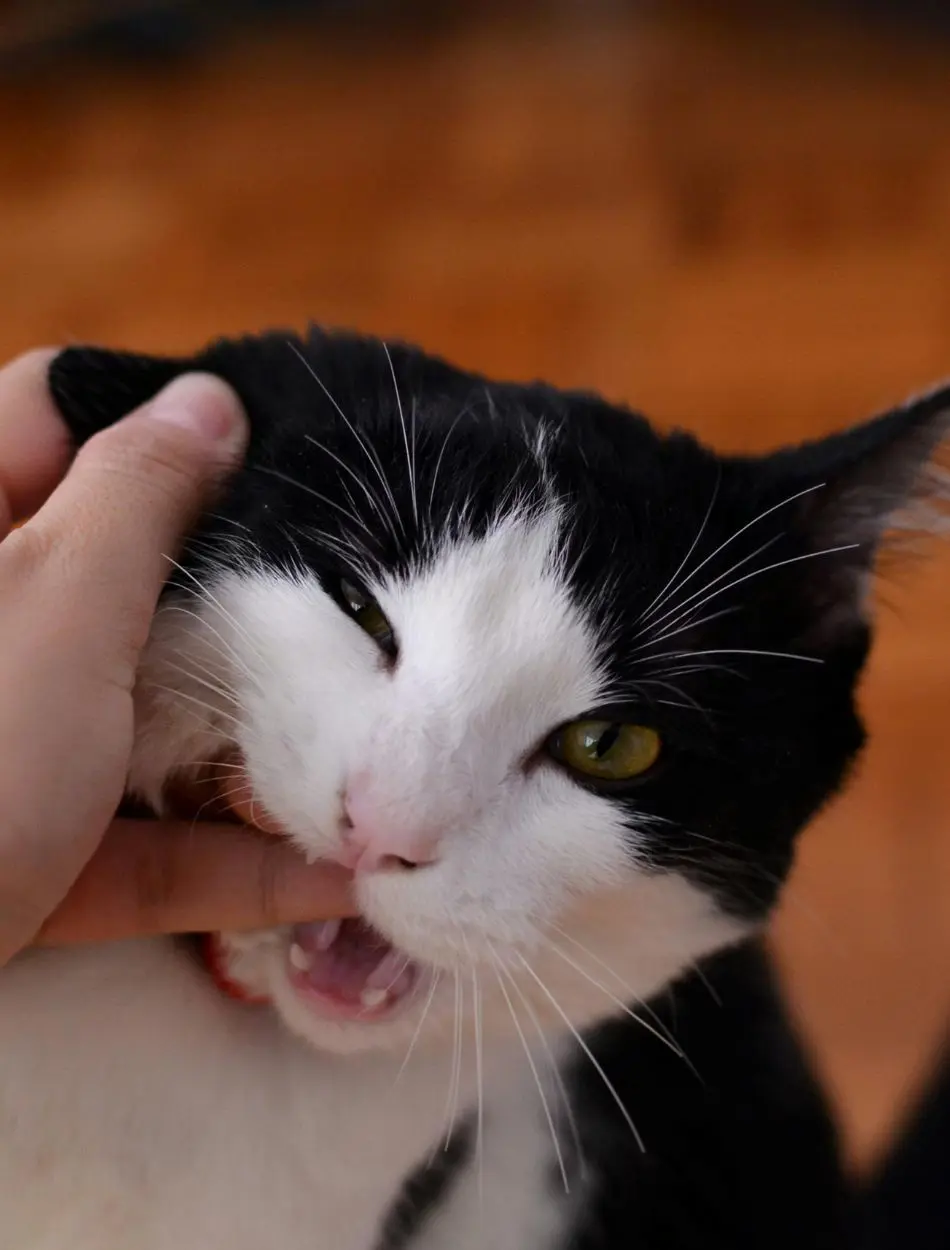
Some cats engage in sucking because it can be soothing, much like when humans become involved in repetitive behaviors to calm themselves. This can take the form of a behavioral quirk during times of change, such as moving into a new home or introducing new pets. To help your cat manage stress you should provide them with a stable and predictable environment together with plenty of attention and affection.
4. Teething
When they start growing teeth cats often suck on objects to comfort their gums, much the same way human babies use teething rings. This can be a more observable trait in kittens but still be present in an older cat with dental problems.
Providing appropriate chew toys can satisfy the urge to chew and suck, which will help prevent the destruction of household items. The visits to the vet will also help ensure your cat's teeth and gums are sound. If your cat sucks a lot on objects, consider the possibility of discomfort due to teething or dental problems.
5. Habit From Kittenhood
If a kittenhood behavior, such as sucking on objects, was not discouraged earlier on, then it will continue into adulthood. The acts become comforting and quite habitual to the cat, notably so if they were found soothing as kittens.
Breaking this habit calls for patience and consistency, such as redirecting their attention to other activities. This may also be attained by providing necessary mental and physical stimulation with toys and plays that are interactive. Knowing the background of your cat, as a kitten, and its experiences may explain why they may have developed this habit.
6. Attention Seeking
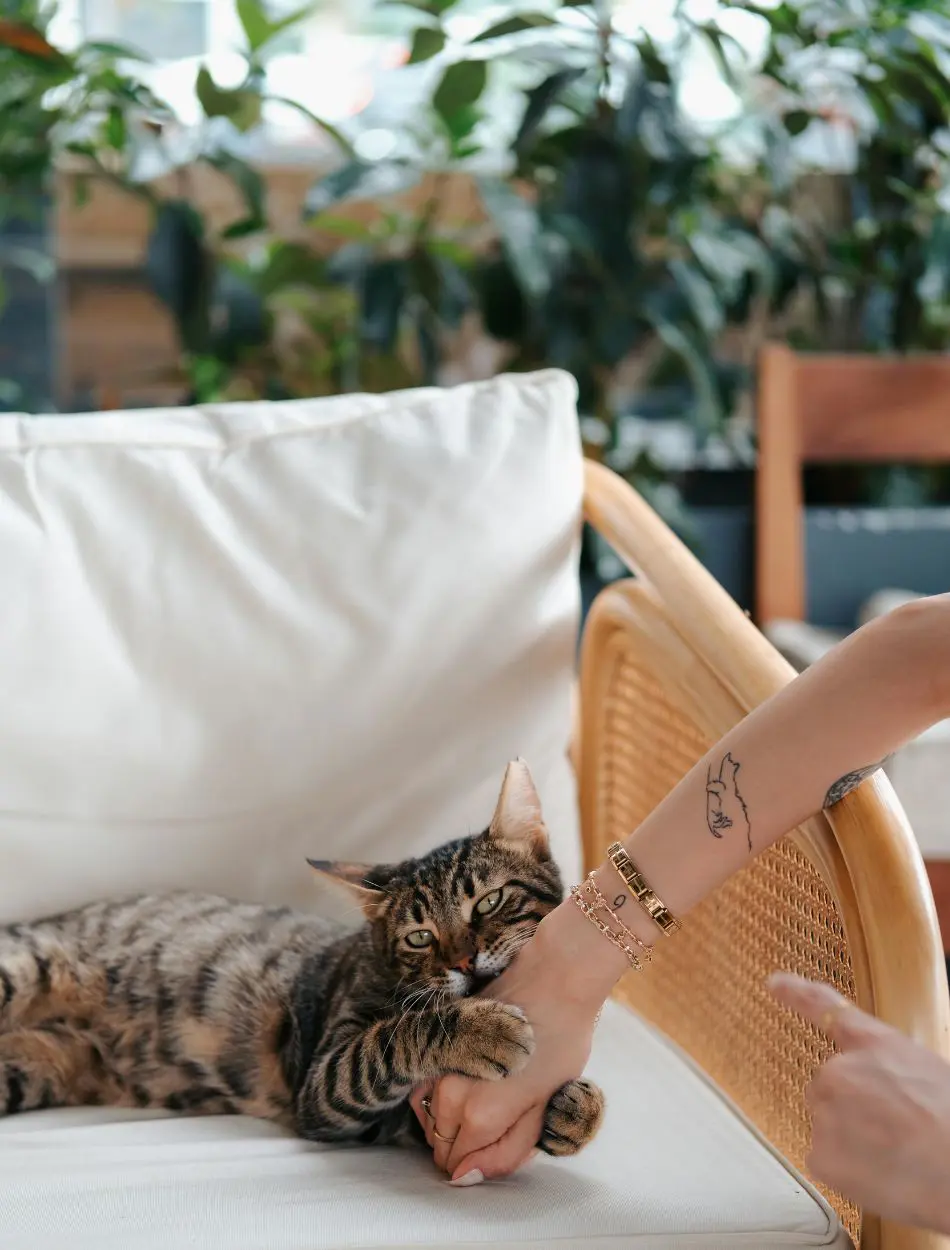
Some cats suck on objects for attention from their owners and even more if they have learned that sucking behavior brings forward a response and provides them with the chance of interaction. In such cases, it may turn into a means of communication for the cat's need to be interacted with or shown affection.
You must give your cat enough attention and playtime to avoid this. If you ignore the sucking behavior and reward other positive behaviors, that should help them change focus. Furthermore, establishing a routine with regular play and cuddling is able to satisfy them and may help in reducing this behavior.
7. Learned Behavior
If a cat observes other cats or even dogs sucking, then it might learn to do so because the cat thinks it is normal behavior or rewarding. So, a learned behavior sticks if it is rewarded with attention or comfort. To distract this, you may want to provide other forms of stimulation and make sure they have enough playthings. Observe how your cat interacts with other pets and you will be able to know where they might have learned this behavior.
Cats can adopt habits of sucking due to other animals. Sometimes they imitate the behaviors that they see, specifically those that seem comforting. In this way, they develop a learned behavior. The provision of other toys and activities may divert their interest from sucking. You can understand their social interactions better to know why they have developed this behavior.
8. Nursing Instinct
The nursing instinct in cats may also persist from kittenhood, causing them to suck on soft objects as a means to obtain the sensation of nursing from their mother. With this kind of tendency, especially in cats brought up by bottle feeding or those that are taken away from their mothers too early, such a soft, comforting object as a stuffed animal may serve the purpose of satisfying this instinct. Also, allowing the kitten enough time with its mother can prevent the development of this behavior.
Another common reason for sucking behavior in cats, particularly bottle-fed or early-weaned ones, is the nursing instinct. The behavior fulfills their need to replace the comfort and security of nursing. Fuzzy toys satisfy this need. If kittens are kept with their mothers for the appropriate length of time, this behavior can be avoided in the first place.
9. Boredom
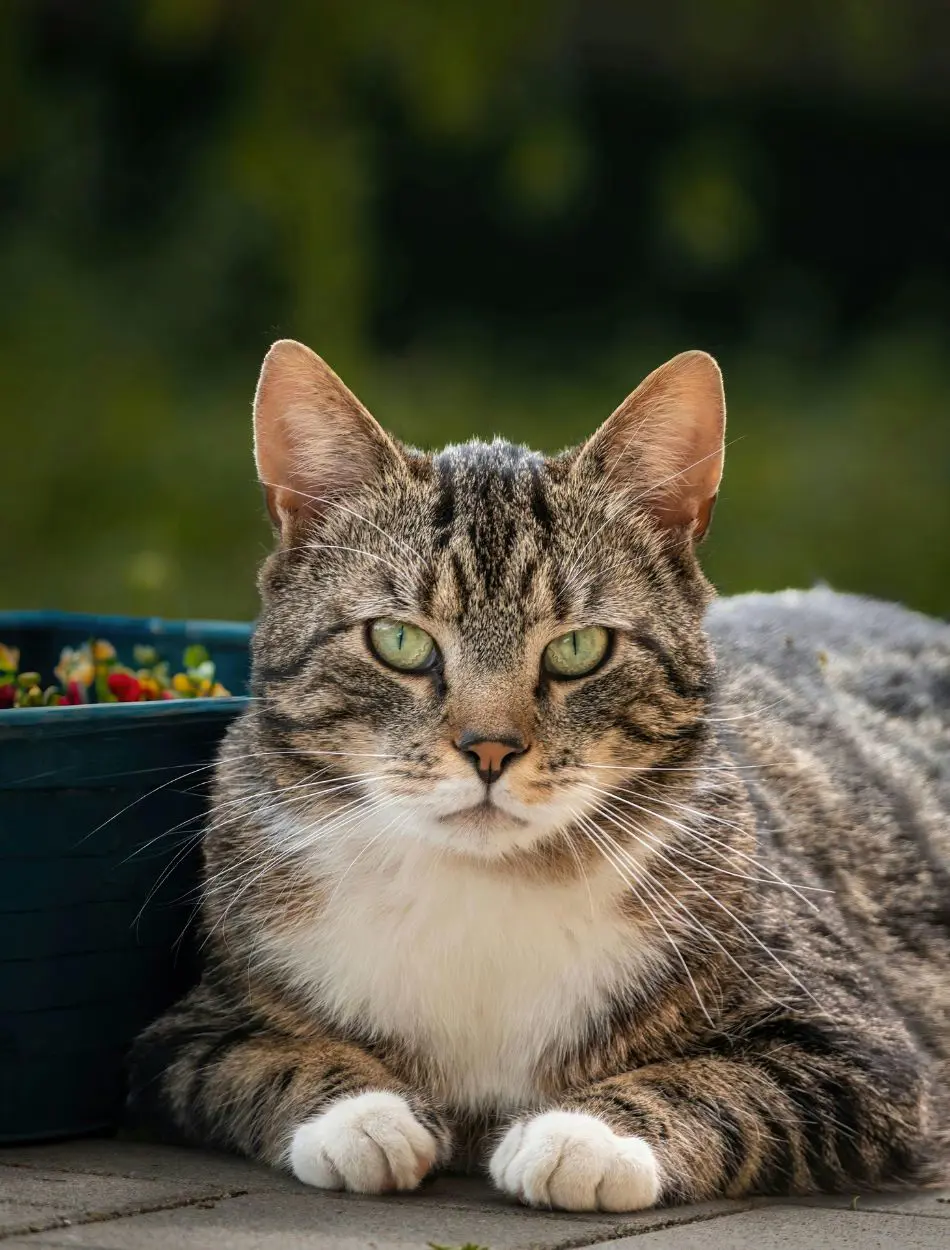
Boredom can lead to various behaviors in cats, including sucking on objects to pass the time and entertain themselves. This can be more common in indoor cats as they have less stimulation than outdoor cats. Providing plenty of toys, scratching posts, and interactive play can keep your cat engaged and reduce the likelihood of developing this behavior.
Cats may suck on objects out of sheer boredom, especially if they lack sufficient stimulation. This behavior helps them fill their time and find some engagement. Providing a variety of toys and regular playtime can help keep your cat entertained. Regularly changing their toys can also maintain their interest and reduce boredom-related behaviors.
10. Hunger
Such behavior can be frequent in cats whose feeding times are irregular and those who do not get enough food at mealtimes. If a cat is hungry, they may suck on objects to say they are hungry which is done mostly in cases where they associate this action with food provision. Ensuring your cat is fed regularly and has enough food can help reduce this behavior. Feeding them a balanced diet and checking on their weight will ensure that they attain the required nutrition.
Other times, hunger can make cats suck on objects as a sign that they need to be fed. This may be the case if he has irregular feeding times or not enough food. These things will exaggerate this type of behavior. Keep a consistent pattern for feeding, and ensure he has enough to eat. Monitor what he eats, along with his weight, so you can ensure that he is getting enough and that the hunger-based kinds of behavior are kept at bay.
11. Insecurity
Cats suckle because they are feeling insecure, and they look for comfort from their environment. This can be caused by changes in the environment, including adding a new pet or moving into a new home. If the environment is stable and as expected, cats will be much less anxious and insecure. Give them a lot of attention, affection, and safe places to retreat to, and they will feel far more secure.
Cats who are insecure may suck on objects as a source of comfort. The sucking could be a reaction to changes, such as adding new pets or even moving to a new location. By creating a stable, predictable environment, you will minimize anxiety. Anxiety due to insecurity can be partly dealt with by giving attention and love to your cat and providing places where the cat may feel safe and retreat to, hence diminishing the behavior.
12. Medical Issues
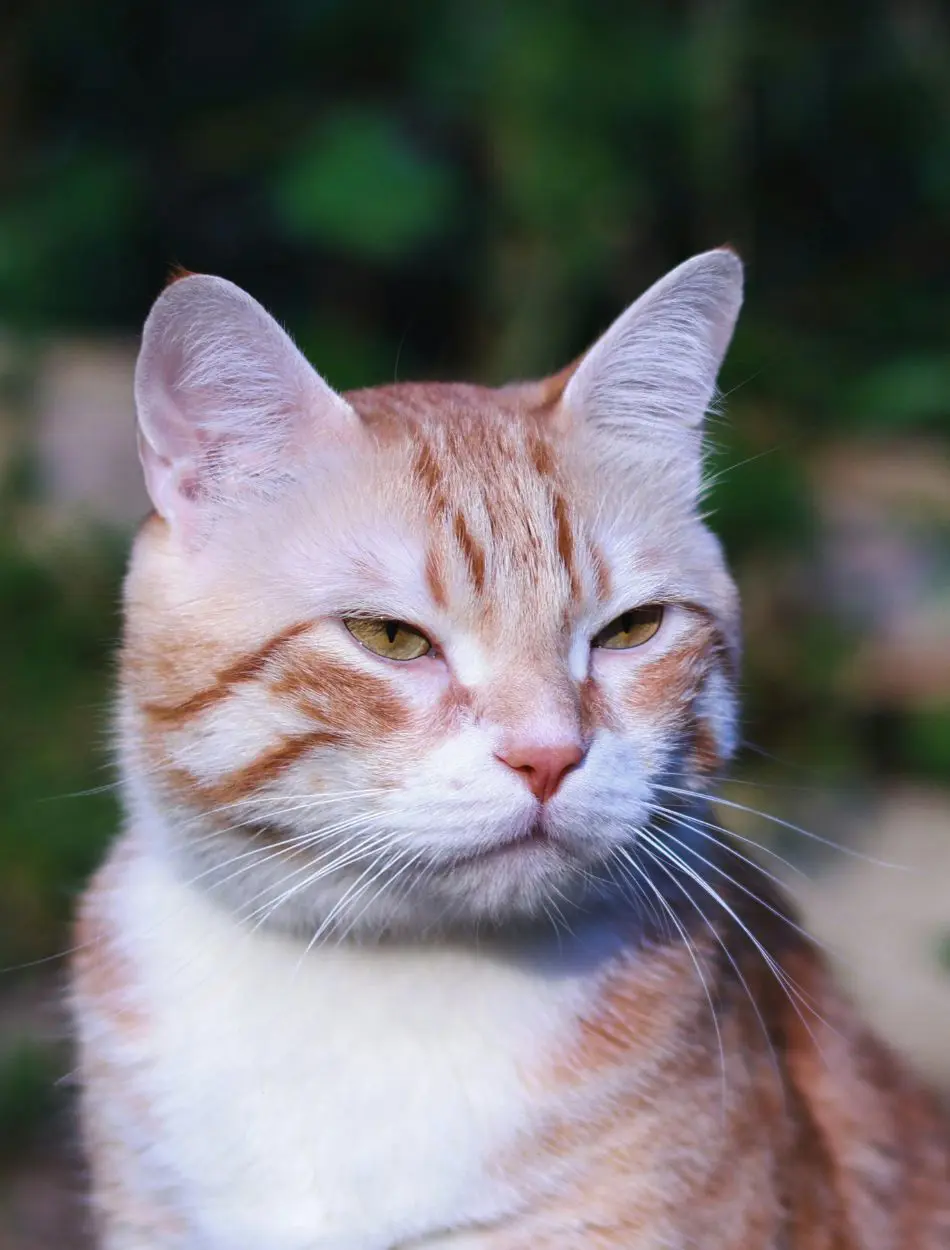
In most cases, some medical conditions, like dental problems or intestinal issues, trouble the cat and therefore it sucks to calm itself. In this case, if your cat suddenly starts sucking or if there is one or more concomitant symptoms, it is necessary to visit a vet in order to exclude possible or latent health problems. Regular check-ups with the vet may also ensure your cat is healthy and let all the necessary corrections be done on the earliest possible note. The probability of your cat acquiring this behavior would be decreased by offering proper veterinary care and answering any type of medical issues.
Medical issues in cats can cause sucking on objects as a form of self-soothing. While it is possible for problems such as dental or gastrointestinal discomfort, the most common reasons for sucking are anxiety and medical problems. Sudden sucking or sucking in conjunction with other symptoms warrants a veterinarian's opinion. Regular checkups will keep your cat healthy and allow early detection of any problems, which will decrease the behaviors attributed to medical issues.
13. Breed Tendencies
Some breeds of cats are much more likely to display sucking behavior due to their predispositions or because they are bred more for this type of behavior. Siamese and other Oriental breeds have been claimed to suck more than most cats.
Knowing your cat's breed tendencies can be helpful in dealing with and managing this behavior. Plenty of mental and physical stimulation, supplemented by comfort objects, will help satisfy their needs. Some breeds have an inherited tendency to suck. Siamese and other Oriental breeds are prone to this. Knowing the tendencies of your cat's breed will help you in attending and managing this behavior. Keeping your cat stimulated and comfortable will help fulfill their needs and reduce sucking behaviors.
14. Sensory Pleasure
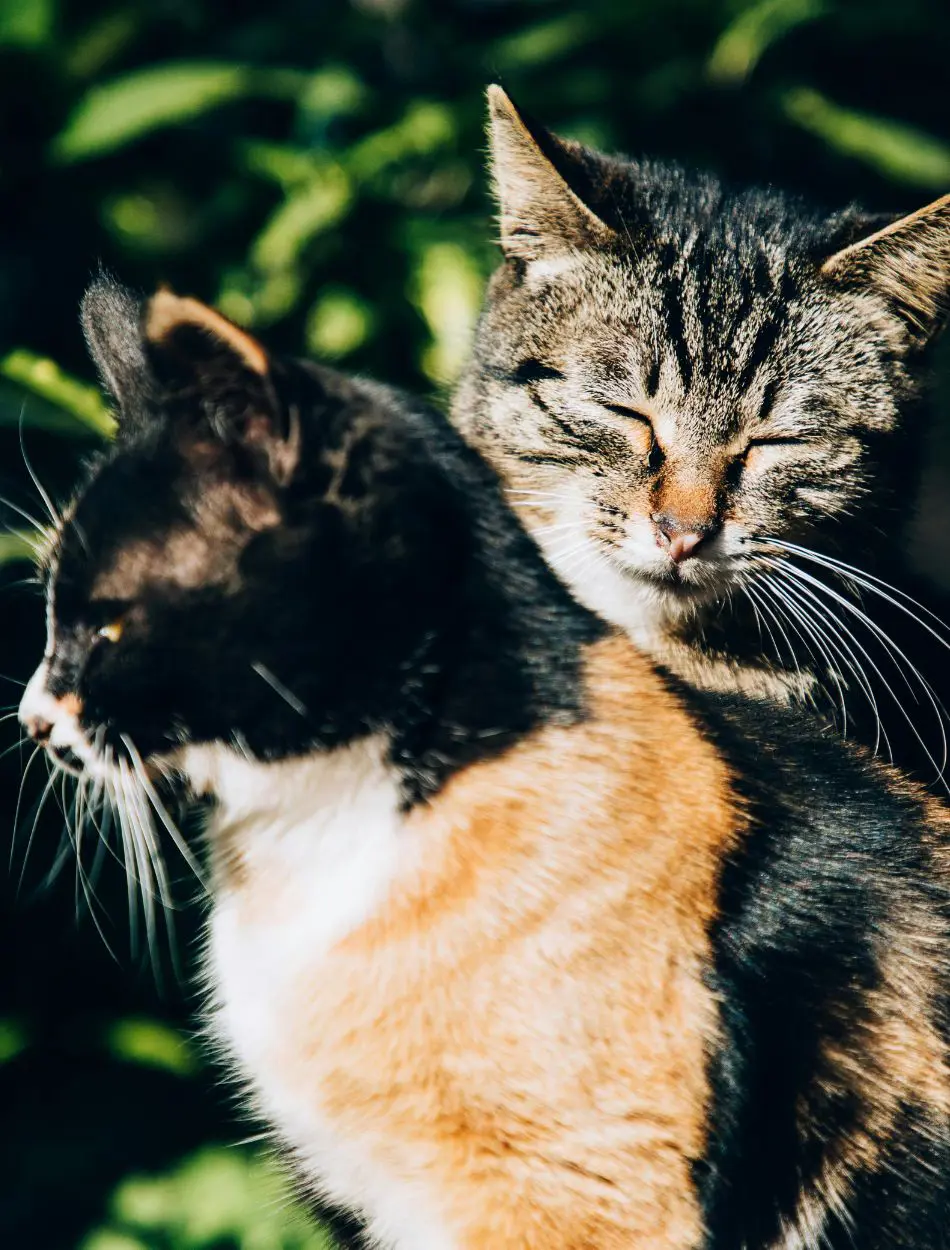
Maybe cats suck on things because they find it pleasurable, stemming from the normal behavioral roots from which humans benefit from such sensory experiences. Thus, this can become a bit more common with highly tactile and olfactory-sensitive cats. Satisfy their sensory needs with a lot of other toys and objects made from differing textural things. Watch and observe your cat's preference for certain textures and materials.
For pleasure's sake alone, some cats like to suck on objects, getting satisfaction from the texture and the feel they get from it. This is more pronounced in cats that are very sensitive to different textures. Providing a good selection of texture-style toys will usually take care of their needs and keep inappropriate sucking at bay. You'll also gain insight into what kinds of things he might be sucking by watching which items he seems to prefer.
15. Anxiety
This anxiety can then manifest itself in sucking on objects to try and relieve the sensation for the cat. This could be due to changes in the environment of the cat that are caused by a new home or maybe even new pets. Attention and affection, with a very stable and predictable environment, will go a long way in calming the anxiety. Calming products like pheromone diffusers can also help with this.
Anxiety can lead to self-soothing behaviors that include sucking on objects. Cats exhibit this response to environmental changes. Keeping their world calm and stable will help alleviate their anxiety. Attention, affection, and calming products like pheromone diffusers create a more relaxed atmosphere and help reduce anxiety-driven behaviors.
16. Mother Separation
Cats separated from their mothers too early might develop a habit of sucking on objects as a way to cope with the loss. This behavior can persist into adulthood as they continue to seek the comfort they missed. Providing alternative forms of comfort, like soft toys or extra cuddling, can help mitigate this behavior. Ensuring kittens stay with their mothers for an appropriate amount of time can prevent this habit.
Early separation from their mothers can cause cats to suck on objects, seeking lost comfort. This behavior often continues into adulthood as they look for that missed security. Offering soft toys and extra cuddling can help provide comfort. Keeping kittens with their mothers for the right duration can prevent this behavior from developing.
17. Nutritional Deficiency

Nutritional deficiency is known to be associated with many behaviors shown by cats, like sucking various objects in a bid to look for more nutrients. It is well advised for one to provide a diet with a balance of all the necessary vitamins and minerals to lessen such behavior in a cat. A veterinarian will help come up with the right feeding plan in order to ensure that the nutritional needs of your cat have been met. These practices can maintain your cat's general health.
Cats can suck on different objects if they have a deficiency of nutrients from their food. Particularly, when cats are lacking in important vitamins and minerals, this type of behavior can be observed. A properly balanced diet that includes all essential vitamins and minerals can minimize this behavior. You should consult with a vet regarding the proper feeding plan. Regularly examine the cat for anything serious and feed it with proper quality to avoid sucking behavior.
18. Territorial Behavior
Some cats suck on objects as part of territorial behavior. This happens if they are made to feel that their space is somewhat insecure. It usually takes place whenever a new pet comes into the home environment or when some change in the environment has occurred. Offering plenty of safe spaces where your cat will feel secure in their territory helps to reduce the frequency of this action. Calming products can create a relaxed feeling, and they include pheromone diffusers.
They suck on objects due to territorial insecurities. New pets or other changes in the home could easily trigger this behavior. You should provide places that are safe and allow your cat to feel safe in his territory. Calming products, such as pheromone diffusers, would aid greatly in creating an atmosphere that is calm in nature, hence reducing territorial stress behaviors.
Top Lists

